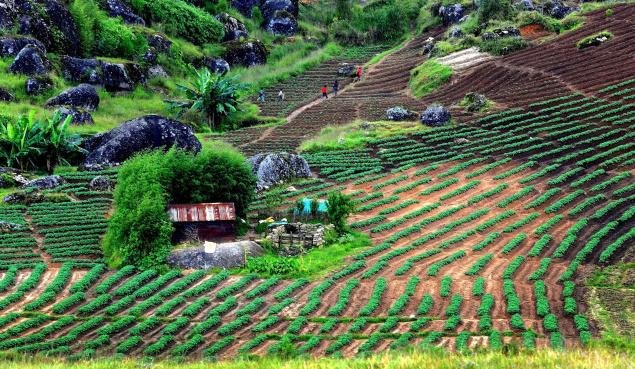Saturday, 21 February 2026

Image Source: www. smartvillagemovement.org
In a decisive step toward empowering India’s tribal and rural communities, the Government of Meghalaya hosted the “Summit for Rural Empowerment” in Shillong, spotlighting grassroots entrepreneurship under the Pradhan Mantri Janjatiya Vikas Mission (PMJVM). The event served as a national convergence of stakeholders committed to transforming traditional skills and forest produce into sustainable livelihood engines through the Van Dhan Vikas Kendras (VDVKs) network.
Organized by the Meghalaya Basin Management Agency (MBMA) under the Planning and Sustainable Development Department, the summit underscored the mission’s ambition to turn self-help groups into self-sustaining micro-enterprises. These VDVKs act as local value-addition hubs, where SHG members—most of them women—process products like wild honey, bamboo, broom grass, jackfruit, millets, and turmeric into market-ready goods.
Chief Minister Conrad K. Sangma, addressing the summit, described PMJVM not merely as a scheme, but as a rural movement to build self-reliant economies rooted in tribal knowledge and ecological assets. “This is about dignity, ownership, and economic justice for our rural families,” he said, while announcing plans to expand the network to over 250 VDVKs, reaching more than 75,000 tribal individuals across Meghalaya. Each Kendra, supported with Rs 15 lakh for equipment and materials, already aids around 300 SHG members, providing year-round income beyond the harvest cycle.
The summit also witnessed the signing of 12 Memoranda of Understanding (MoUs) between the Meghalaya government and premier national institutions in design, research, skill training, and agribusiness development. These partnerships are expected to unlock new competencies in packaging, branding, quality assurance, and product diversification. Seven additional collaborations are currently being negotiated to deepen the ecosystem.
Participants included VDVK teams from nine other Indian states, transforming the summit into a cross-learning platform for tribal entrepreneurs nationwide. The mission’s scope was further widened with the onboarding of two new women-led ventures in handloom and handicrafts, marking a shift toward non-forest sectors and circular rural economies.
A major highlight was the soft launch of a promotional teaser for “Tribes India,” the flagship retail platform by TRIFED, which will now feature curated Meghalaya-based products. This platform will connect rural producers with urban and national markets, enhancing brand visibility and ensuring fairer prices for artisanal and eco-friendly goods.
Agriculture Minister Mazel Ampareen Lyngdoh praised the initiative for helping tribal producers become business-ready. “This mission is transforming our farmers and artisans into confident entrepreneurs. It is rebuilding the rural economy from the inside out,” she said.
Currently, over 169 VDVKs are operational in Meghalaya alone, while the national footprint of PMJVM has reached more than 3,950 Van Dhan groups, impacting over 11 lakh people. The mission synergizes closely with flagship programs like One District One Product (ODOP), as well as with ministries including MSME, AYUSH, ICAR, and MoFPI, creating a convergent framework for tribal advancement.
The summit concluded with interactive workshops and peer-to-peer dialogues on sustainable sourcing, market access, and digital commerce. Eleven VDVKs from West Bengal, Odisha, Jharkhand, Rajasthan, and the North East were felicitated for excellence in innovation and community engagement.
By linking local enterprise with national ambition, the Meghalaya summit reaffirmed that tribal empowerment is not charity—it is strategy. A strategy to build resilient, dignified, and inclusive growth from India’s forested heartlands outward.